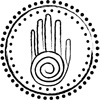Written in the McGill Journal of Education, Fall 2002 by Jeff Orr, John Jerome Paul, Sharon Paul
http://findarticles.com/p/articles/mi_qa3965/is_200210/ai_n9087613/pg_5/?tag=content;col1
This article discusses how three educators from a Mi’kmaw background in Nova Scotia are trying to decolonize the European school system by bringing awareness and indigeonous knowledge to the students. Decolonization through Aboriginal ‘cultural practical knowledge’ which is dessiminated through the school system is the focus of this story. These women are attempting to highlight aboriginal knowledge and bring attention to the decolonizaton movement.
“Many educators agree that [the] honoring of Aboriginal cultural knowledge is one of the most significant ways schools can be more responsive to Aboriginal students’ needs”



